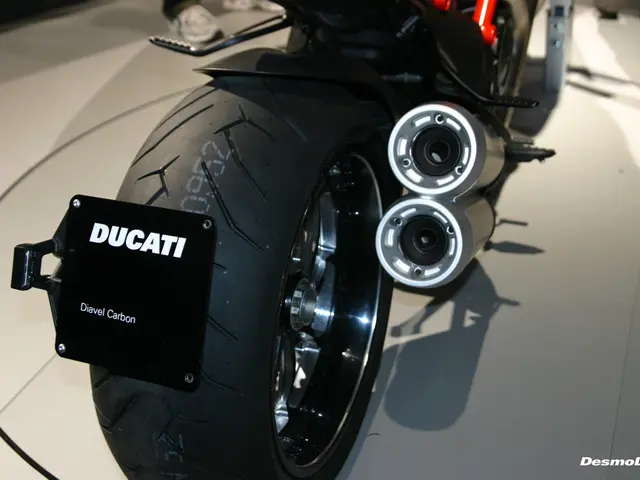Navigating the Solar Peak Law: Insights for Photovoltaic System Owners
Duty of Photovoltaic System Owners Explained
Ready to power your home with solar energy? Well, hold up! The Solar Peak Law could change the game for private system owners in Germany. Here's what you need to know about these new guidelines.
Solar power overflow, anyone? At midday, Germany experiences peak energy production from solar-powered systems. Sounds great, right? Turns out, it can temporarily overload the power grid. Enter the Solar Peak Law – a law designed to ensure a smoother distribution of solar energy throughout the day.
The lowdown, simplified: systems with a capacity of 7kW or more require an intelligent metering system (iMSys) and a control device to feed energy without restrictions. But, if you don't have these features yet, your feed-in capacity will initially be limited to 60% of the rated power. And, systems under 7kW are permanently limited, even with an iMSys.
Adjusting to the loading zone
With the iMSys in place, new systems of 2kW or more will not receive feed-in compensation if the wholesale electricity price is negative. This occurs when there's too much solar power and no buyer on the exchange. Approx 500 out of 1,600 sunny hours last year saw such losses, but the missing compensation will be paid out within 20 years.
The goal? To ease network congestion during peak hours and encourage self-consumption or storage.
The solar industry's take
The German Solar Energy Association (SFV) isn't exactly galvanized by this move. SFV board member Prof. Dr. Frank Hergert points out that the 60% feed-in cap without control technology could lead to significant energy loss. Hergert also criticizes the limitation's applicability regardless of network overload and the law's emphasis on market signals (like wholesale electricity prices) over actual grid situations.
Hergert also flags that operators of smaller PV systems will be economically disadvantaged without smart meter infrastructure. While self-consumption and storage can offset losses, not everyone can afford these investments.
Cosmic opportunities in a regulated world
Allgäu-based company Sonnen, which manufactures intelligent storage systems, sees a silver lining in the law's new rules. Oliver Koch, CEO of Sonnen, says, "The law now rewards the right timing for feeding electricity into the grid, not just the quantity. For households, this means: Intelligent energy management and a storage system are now an absolute necessity!"
While the new rules could lead to a 25% drop in revenue, Sonnen believes that intelligent "direct marketing" of excess PV electricity, charged based on optimal pricing and weather forecasts, can reduce these losses.
Smart tips for PV system owners
Energy guidance: Seven Steps to Your Own Solar Plant
Install your system post 25th Feb 2025? If it's 7kW or more, consider installing an iMSys and control device to avoid the feed-in cap. Although this means additional costs, it protects against permanent yield losses and enables later direct marketing or smart consumption control – without limitations.
Crucial steps: Planning the installation of the Photovoltaic System
If your system is already installed, fear not – existing remuneration schemes and technical conditions continue to apply. However, these systems will eventually receive an iMSys and, if 7kW or more, a control device. If you want to improve self-consumption, consider a voluntary retrofit of a storage system or energy management systems.
Bottom line: the Solar Peak Law could be more of a benefit than a burden for PV system owners if owners smartly leverage the law's provisions to offset the restrictions. Plus, the emphasis on storage integration opens up opportunities for more efficient solar energy management and potential savings or income streams for households.
- Understanding the Solar Peak Law is vital for solar system owners in Germany, as it aims to regulate the distribution of solar energy and prevent grid overload during peak hours.
- Systems with a capacity of 7kW or more must have an intelligent metering system (iMSys) and a control device to avoid feed-in limitations, while smaller systems are permanently limited even with an iMSys.
- With the iMSys, new systems of 2kW or more may face losses during negative wholesale electricity prices, which occur when there's too much solar power and no buyer on the exchange. However, these losses will be compensated over 20 years.
- The German Solar Energy Association (SFV) criticizes the law's feed-in cap and its emphasis on market signals over grid situations, voicing concerns that it may disadvantage operators of smaller PV systems without smart meter infrastructure.
- Despite potential revenue drops, companies like Sonnen see opportunities in the law's new rules, emphasizing the importance of intelligent energy management and storage systems for households to leverage the optimal pricing and weather forecasts for direct marketing of excess PV electricity.








